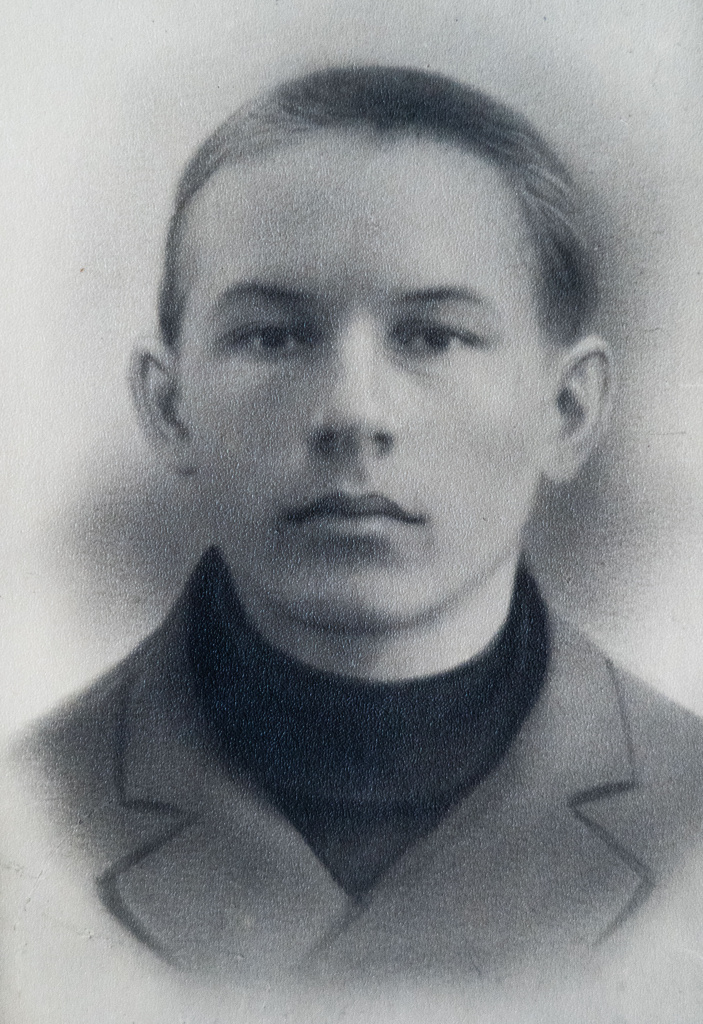 Viktor Kvyatkovsky
Viktor KvyatkovskyStudents of LISI (SPbGASU) recalled how their coursemate, an excellent student and a guy with a good heart, Viktor Kvyatkovsky (1919–1943), was always ready help: he pulled them up in any discipline or went first to the most severe examiner. With the beginning of the Great Patriotic War, he, being a fourth-year excellent student of the Faculty of Civil Engineering, signed up as a volunteer in the intelligence school. And already in the first months of the war, the reconnaissance radio operator, the chief foreman successfully completed the most difficult command tasks deep behind enemy lines, for which he was awarded the Orders of the Red Banner of Battle and the Red Star. During the next mission, he died heroically, not allowing himself to be captured and not leaving important information to the enemy.
Viktor Kvyatkovsky was born in the Amur Region. Local scouts learned about the exploits of their countryman from the article "Heroes glory is immortal", published on 29 May, 1975 in the newspaper "Red Star". It contained the report of the Baltic intelligence officer Emden, taken from archival documents. The author of the article, captain of the first rank M. Korenevsky, said: “This is how the Emden scout, Viktor Stanislavovich Kvyatkovsky, wrote reports. The cited document is filed in his personal file, it is stamped with the corresponding signature, service marks and the resolution of the head of the Intelligence Department of the Red Banner Baltic Fleet headquarters: "Propagate in ... copies, use as a manual for the training of intelligence officers." The author of the article points out that Emden wrote this report after completing his first combat mission deep behind enemy lines in July-August 1942.
Long before the publication of this article, Associate Professor at LISI / SPbGASU, front-line soldier Igor Klinov, who left at the beginning of the war in the militia, began to search for facts about the military biography of Viktor Kvyatkovsky. Igor Klinov managed to shed light on many events in the life of athe fighter. The SPbGASU archive stores certificates from the commissariats and military archives sent at its request. In 1957, the Archives of the Baltic Fleet reported: Viktor Kvyatkovsky served in the naval service in the intelligence department of the headquarters of the Red Banner Baltic Fleet with the rank of a sailor, specializing as a reconnaissance radio operator.
The archive certificate also lists the awards and briefly outlines the feat for which the hero was awarded the Order of the Red Star. “On 19 October, 1942, Comrade Kvyatkovsky was delivered by plane to the rear of the enemy, wh ere he landed by parachute and for eleven days in difficult autumn conditions carried out a combat mission of the command for reconnaissance of defensive structures on the Luga River, watercraft on the Luga River and in the Luga Bay and roads in the coastal region. Comrade Kvyatkovsky performed the task completely and perfectly, reporting to the command about the traffic on the highway and railway in the section Narva - Kingisepp, Kingisepp - Krikkovo, Krikkovo - Ust-Luga - Kotly. Established the presence and number of garrisons in the village of Salo, Koshkino, Kurovitsy, Ust-Luga, Bolshoe Kuzemkino, Kropolie, Koskolovo and a number of other settlements. Despite the danger, he killed a traitor to the Motherland - the German intelligence officer "X", seized valuable documents and delivered to our location.
A handwritten letter from front-line soldier V. D. Fedorov from Moscow, dated 1961 and sent to Igor Klinov, has been preserved: “Viktor graduated from the school of radio operators in the intelligence department of the Red Banner Baltic Fleet headquarters before me, and when I was still studying, he was already performing combat missions. In 1943, I met Viktor in Lebyazhie, in a safe house, wh ere he was preparing for a mission. A certain school of conspiracy did not allow us to talk about the details of our personal lives. This was our first and last meeting. The sad story of Viktor's death was told to me by Nikolai Kuzub, a scout of the Lebyazhskaya group, with whom I worked outside Narva: Viktor's group was surrounded by the Nazis when crossing the coastal defenses. It turned out that the guys were betrayed by their guide, he surrendered and subsequently worked for the Germans. Viktor preferred to die rather than fall into the Nazis hands, and blew himself up with a grenade.
The death of the scout Viktor Kvyatkovsky was described in the Smena newspaper in 1972 as follows: the seriously wounded Viktor, having shot the entire clip, covered the radio transmitter and ciphers with his body and pulled out the grenade ring without removing it from his breast pocket.
The same article contains Kvyatkovsky's letters to Asya Saenko, his close friend. In the first days of the war, Viktor wrote to her: “Hitler, as I thought, turned out to be a great bastard <…> Let's try not to stay in this business. We are actors. Time will tell everything".
Other materials of the "Scientific Regiment" project:
Our Graduate Built the Road of Life
Front Line of the Architect Aleksandr Nikolsky
Researcher who Developed Science in Besieged Leningrad
Fights of Student Klinov
Engineer of the 3rd Belorussian Front
Nineteen-Year-Old Gunner Stormed Berlin
Path of a Volunteer: from Front-Line Roads to Space Development
Ivan Solomakhin: "The Most Memorable Battle was for this Devil's Hill!"
Fiery Dnieper of the Hero of the Soviet Union Aleksandr Prygunov
Approaching to the Victory
Fedor Komal's Front: from the War Start to the Victory
Junior Political Instructor Boris Gubanov: “Shells Were Whizzing, and the Ground Took off Nearby”